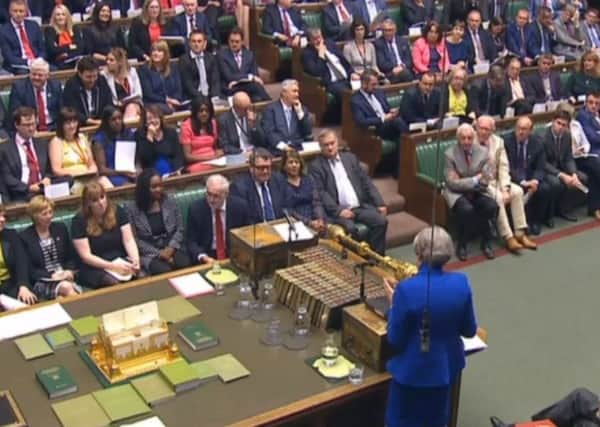The Yorkshire Post says: Time to build consensus politics. MPs do have more in common than they care to admit


Yet, while the year ends with Mrs May still in power and determined to see the Brexit negotiations through to the end, the state of flux has been a baptism of fire for those MPs who were elected to Parliament, some more unexpectedly than others, on June 8. They’re now presiding over Britain’s departure from the EU.
This surprise is self-evident in the candour shown by Hull West and Hessle’s Emma Hardy, and Colne Valley MP Thelma Walker, as the two former teachers reflect on their first six months in the Commons and how they have come to terms with their onerous responsibilities.
Advertisement
Hide AdAdvertisement
Hide AdLike all Parliamentarians, they don’t deserve the personal abuse that is now meted out in contemporary politics – they’re people doing their best for their constituents – and a more respectful culture needs to be fostered in 2018.
It should begin at Westminster. It should be welcome that Ms Hardy, and her West Yorkshire colleague, worked as teachers – the issue of skills has never been more important and their expertise should be used to enhance the policy-making progress so there’s greater consistency in the classroom. Education Secretary Justine Greening’s call for a grand ‘coalition’ on social mobility is laudable – will it work?
Equally Ms Hardy, already a shadow Brexit minister, observes that there’s a surprising amount of “cross-bench support” on various strands of policy as MPs debate the terms of the country’s exit from the European Union. It’s a telling point. For, if debates began with rival politicians establishing the areas where they agree, the areas of disagreement might not be so divisive – and irreconcilable.
It’s just a humble suggestion to enhance the political process and, in doing so, help MPs to win back some of the trust that has been lost in recent years for a multitude of reasons.